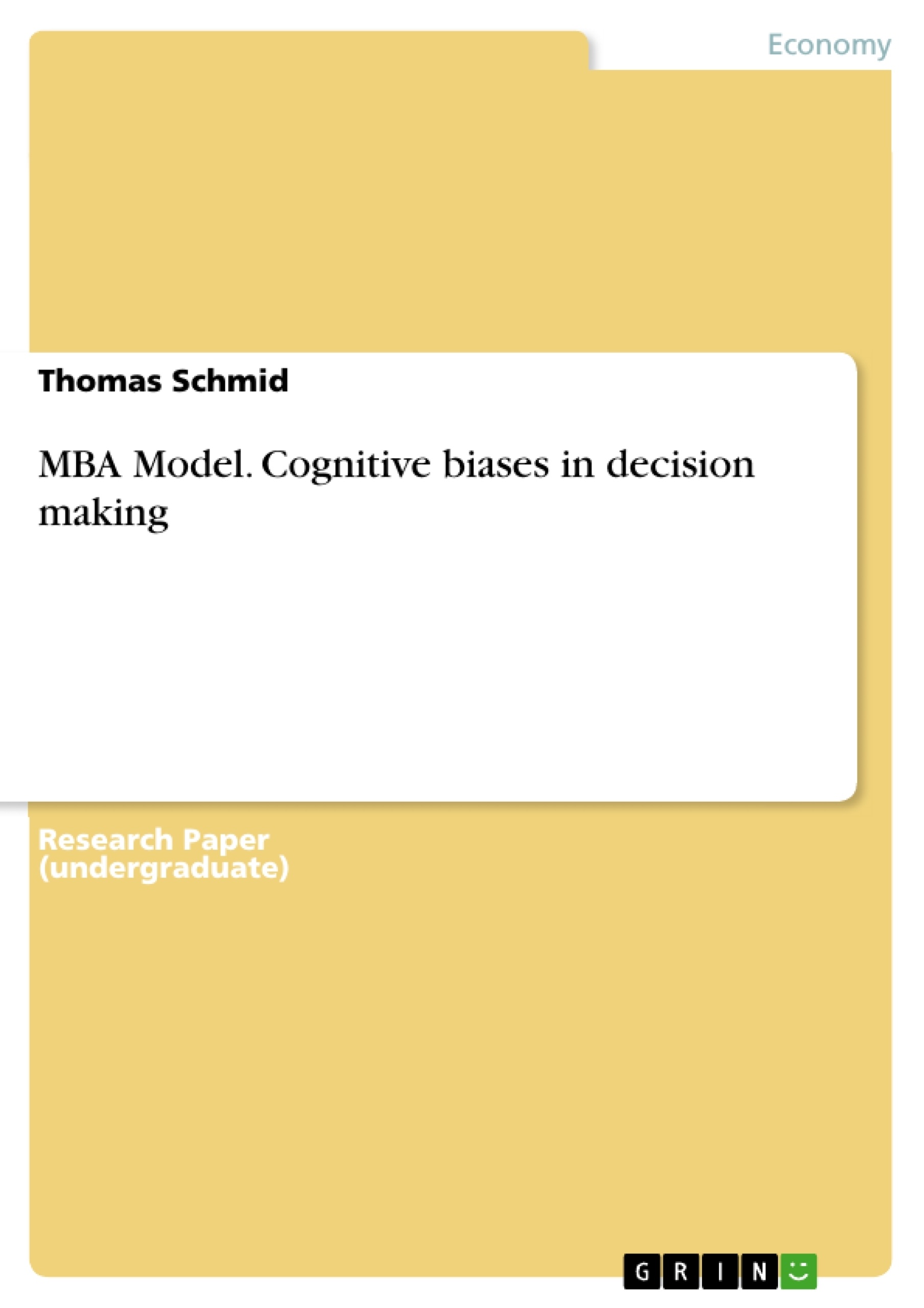Human's mind cannot grasp the causes of events in their completeness, but the desire to find those causes is implanted in man's soul. And without considering the multiplicity and complex-ity of the conditions any one of which taken separately may seem to be the cause, he snatches at the first approximation to a cause that seems to him intelligible and says: "This is the cause!".
There are many models and frameworks in use in the business world today, and it is hard to keep track of them all. The MBA Model is designed to provide people with a broad groundling in all the key aspects of business. It is a simplified version of something more complex – it helps to understand a specific phenomenon by identifying its key elements.
Management is the art of getting work done through others. It involves marshalling a set of resources to achieve desired objectives. Managers make decisions about allocating people and money in an effective way. There are many analytical tools to help decision making, including decision trees and net present value analysis. Most decision making is not as rational as we might expect it to be.
Cognitive biases in decision making discusses why people often make snap judgements that are flawed, and how effective managers can overcome these biases to make better decisions.
The following work is based on the theoretical foundations of the MBA model (25 need-to-know MBA models, Birkinshaw, 2017). After clarifying the basics in Part 1, examples of Cognitive Biases will follow. In the end of the Scientific Report the Management failure traced back to cognitive bias get explained.
Inhaltsverzeichnis (Table of Contents)
- Introduction
- Explanation of MBA Model and Cognitive biases in decision making general
- Cognitive biases in decision making
- Explanation
- How to use it
- Examples of cognitive biases unconsciously in everyday life
- Management misjudgements traced back to cognitive bias
- Summary and Conclusion
Zielsetzung und Themenschwerpunkte (Objectives and Key Themes)
This scientific report aims to clarify the concept of cognitive biases in decision making within the framework of the MBA Model, focusing on how these biases impact management practices and decision-making processes. The report aims to provide insights into how these biases can lead to faulty judgments and explore strategies to mitigate their negative effects.
- The role of cognitive biases in decision making
- The impact of cognitive biases on managerial decisions
- Methods to mitigate the influence of cognitive biases
- Examples of cognitive biases in everyday life and business contexts
- The MBA Model as a framework for understanding cognitive biases
Zusammenfassung der Kapitel (Chapter Summaries)
- The introductory chapter defines the MBA Model and its relevance to understanding cognitive biases in decision making. It explores the inherent human tendency to seek immediate explanations for complex events and acknowledges the limitations of rationality in decision-making processes. The chapter highlights the importance of using analytical tools and frameworks to improve decision making.
- This chapter delves into the concept of cognitive biases in decision making, explaining their nature and providing examples of how they manifest in everyday life and business contexts. It explores methods for identifying and mitigating the influence of these biases in decision-making processes.
Schlüsselwörter (Keywords)
The key terms and concepts in this report include cognitive biases, decision making, MBA Model, management, rationality, analytical tools, decision-making frameworks, and misjudgments. The report explores how these concepts interact and influence each other within the context of business practices.
- Arbeit zitieren
- Thomas Schmid (Autor:in), 2020, MBA Model. Cognitive biases in decision making, München, GRIN Verlag, https://www.grin.com/document/1035004



